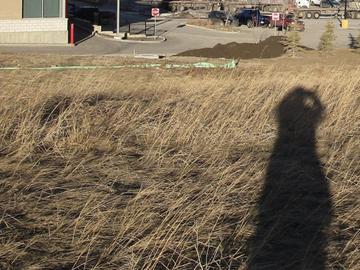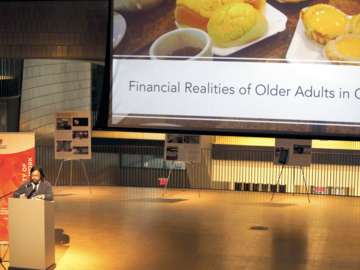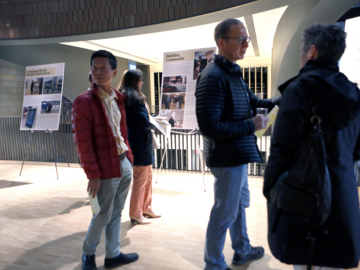Nov. 4, 2020
Immigration policy through the lens of those who live it

For many parents, not becoming a burden on their children is a top priority in life.
However, for many older immigrants to Canada, immigration and migration policies almost ensure that they will be. And at the very least the dynamic created by these policies stresses household members and changes the trajectories of people’s lives and retirement.
Dr. Ilyan Ferrer, PhD, a researcher in UCalgary's Faculty of Social Work, hopes a new research collaboration will capture the realities of older Filipino immigrants in Calgary, Toronto and the Philippines by using their own words and images.
The goal of the Photovoice project — which is being funded by a new $65,086 Insight Development Grant from the Social Sciences and Humanities Research Council of Canada (SSHRC) — is to shine a light on the issues and push for change.
Raising awareness about Canadian immigration policies
As Ferrer explains, current immigration and migration policies such as the Parent and Grandparent Program and Parent and Grandparent Supervisa reflect an intentional desire to limit the number of older individuals coming to Canada. He says both programs reflect an intentional desire to limit the number of older individuals coming to Canada.
To qualify, applicants must pass a very high medical clearance and their sponsors (usually their children) have to show that they can pay if anything should happen to them — so they don’t become a “burden” on the health-care system.
“Most troubling,” says Ferrer, “is that the visa offloads any financial responsibilities from the Canadian state. They don't receive any pensions, so the financial and social burden of care is on the sponsor.”
Ferrer points out that framing immigrant and migrant older adults as a financial threat ignores the many contributions they make in Canada, as cultural stewards and as caregivers who enable their adult children to enter the workforce.
Life on $1,400 a month
Last October, Ferrer hosted a knowledge dissemination event as part of social work's popular Positive Disruption series. The event showed the financial and social realities of older immigrants in Calgary using their own photos and narratives. Ferrer is leading a new project which is also using Photovoice.
“Most troubling is that the visa offloads any financial responsibilities from the Canadian state. They don't receive any pensions, so the financial and social burden of care is on the sponsor.”
Giving research participants the platform to be heard
To get at the intersection of the issues involved — aging, immigration, labour and care — the research team, which includes co-applicants Conely de Leon from Ryerson University and Robyn Rodriguez from University of California, will use a Photovoice approach. The researchers give cameras to older Filipino adults living in Calgary, Toronto and the Philippines, who are then asked to capture significant images of things representing their lived experience. The magic comes in how they describe the significance of the images, literally giving a voice to the photos.
Ferrer says that as a critical, structural, social worker, he’s often really invested in examining the power discrepancies between programs and policies and participants’ actual lived experiences. However, he often finds his participants want to say something else.
“It’s often the older adults saying, 'Well, yes, this is true. This is part of our reality, but I really want you to showcase this — my dedication and my love of family,'" says Ferrer. "That’s really powerful for me as someone who is listening, honouring and acknowledging the stories. Because it adds expanded, nuanced reflections.”
International research in the time of COVID
A project like this, with national and international scope, would be daunting at the best of times. The global pandemic further complicates things, especially since the projects are typically expected to be completed within two or three years.
The team plans on respecting health and institutional guidelines, while approaching the project a step at a time. They’ll likely begin by collecting data in Calgary and Toronto while engaging in knowledge dissemination. Then, if it’s realistic, they’ll expand to the Philippines.
Ferrer admits that it would be a huge disappointment if he is ultimately unable to travel to the Philippines because of COVID.
“As a child of the diaspora, and the child of immigrants, this project holds a lot of personal meaning for me,” says Ferrer. “So, this was not just a professional engagement with my ancestral homeland. It was also emotional and personal at the same time.”









